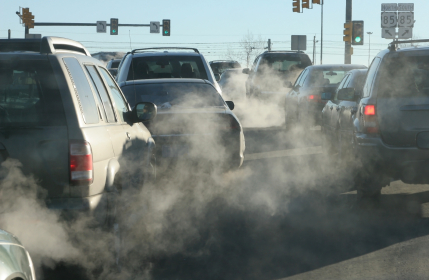Road pollution is a serious danger to children’s health. That’s the worrying conclusion of the longest and largest study ever undertaken into the effects of traffic fumes on child development. Researchers from the University of Southern California spent 13 years studying children who lived within 500 meters of busy highways. They found that most of the 3,600 children in the study had significantly weakened lungs. Researchers said this meant the children could have breathing problems for the rest of their lives. The main author of the study W. James Gauderman said: "Someone suffering a pollution-related deficit in lung function as a child will probably have less than healthy lungs all of his or her life.” He added: "If you live in a high-pollution area and live near a busy road, you get a doubling of the damage.”

Gauderman and his team conducted their research on youngsters who lived near busy roads. Once a year, the team measured the children's lung power. It checked how much air the children could release in one breath and how quickly it could be released. The team found that by their 18th birthday, children who lived within 500 meters of a highway exhaled three per cent less air compared with children who lived one-and-a-half kilometers away. Further, the highway children’s lung power was seven per cent weaker in the rate at which they could exhale. Gauderman said that: "Even if you are in a relatively low regional pollution area, living near a road produces lung problems." About a third of the children moved away from busy roads during the study but stayed near the same community. Their lungs developed more healthily.












